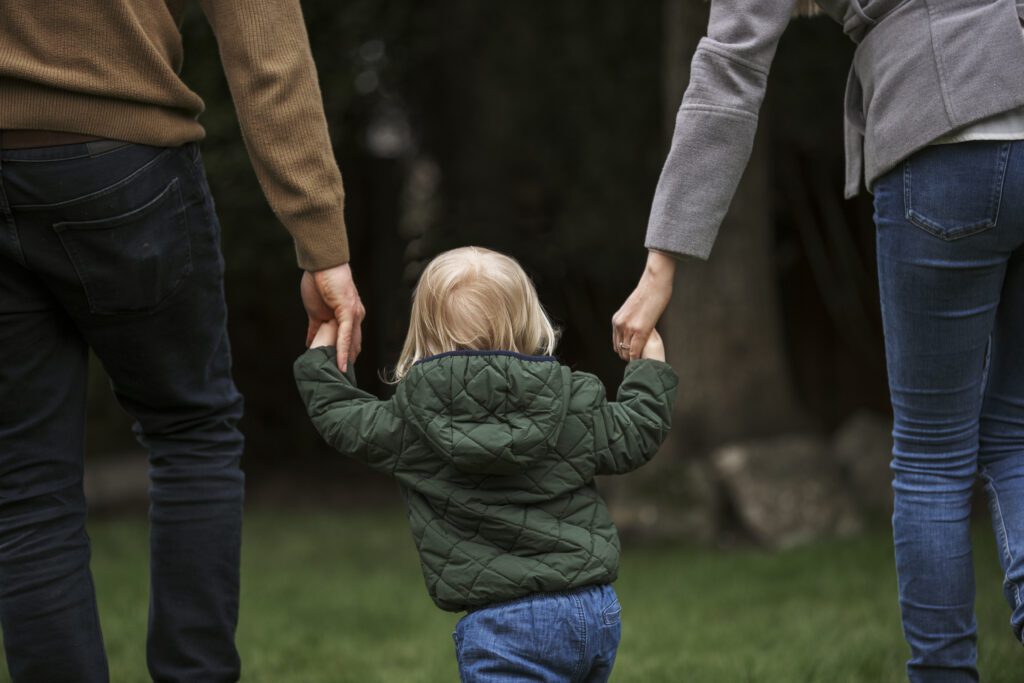Friendly Note: FreeJupiter.com shares general info for curious minds 🌟 Please fact-check all claims—and always check health matters with a professional 💙
Parenting styles shape the emotional and psychological development of children more than most people realize. For decades, experts have studied how different approaches to discipline, affection, structure, and communication impact a child’s future behavior, mental health, and self-worth. A recent perspective gaining attention is known as “emotionally safe parenting.” It was highlighted in an article by Reem Raouda, a parenting expert who studied over 200 children. She found that emotionally safe parenting consistently delivered stronger emotional outcomes than more traditional parenting styles.
So, what does emotionally safe parenting involve, and how does it compare to the four classic parenting styles often discussed in developmental psychology: authoritative, authoritarian, permissive, and neglectful? Each approach has its own set of rules, strategies, and long-term effects on child development. Understanding the differences helps caregivers make more informed decisions, especially when trying to support children in today’s emotionally complex world.
What Is Emotionally Safe Parenting?
Emotionally safe parenting focuses on meeting children’s emotional needs through validation, consistent support, and open communication. It builds on the foundation of authoritative parenting but places greater emphasis on emotional connection, psychological safety, and healthy relational repair after conflict. Raouda defines emotionally safe parenting as parenting that creates a non-judgmental space where children can feel heard, loved, and understood.
Instead of controlling or directing behavior through fear or praise alone, emotionally safe parenting aims to cultivate internal emotional awareness in both parent and child. This allows for deeper trust and better conflict resolution. It is not about being perfect or soft. It is about being intentional and responsive. Parents practicing this style hold boundaries, but do so with emotional presence and consistent reassurance.
Authoritative Parenting: The Close Cousin
Authoritative parenting is widely regarded as one of the most effective parenting styles. It combines high expectations with emotional responsiveness. Parents who use this style offer structure and enforce rules, but they also show warmth and listen to their children’s viewpoints.
This approach often results in well-rounded kids who are confident, socially competent, and able to self-regulate. It values both autonomy and guidance. Emotionally safe parenting draws heavily from this style, especially its emphasis on balanced discipline and communication. The key difference lies in the deeper focus on repairing emotional ruptures and acknowledging emotional complexity during conflict.
While authoritative parents may sometimes prioritize behavior correction first, emotionally safe parents focus on connection before correction. This small shift can make a significant difference in how children internalize their worth and handle stress later in life.
Authoritarian Parenting: High Control, Low Warmth
Authoritarian parents maintain strict rules and expect unquestioned obedience. Discipline is often punitive rather than instructional. Emotional expression is discouraged, and failure to meet standards may be met with criticism or punishment.
Children raised with this style may become obedient and academically focused, but they often struggle with self-esteem and emotional regulation. They might also fear failure and avoid taking risks due to fear of rejection or punishment.
Unlike emotionally safe parenting, which prioritizes connection, authoritarian parenting leans on control and compliance. Raouda argues that children need to feel emotionally safe in order to learn and thrive. Without this foundation, children may achieve success on paper, but often lack confidence or feel disconnected from their caregivers.
Permissive Parenting: High Warmth, Low Boundaries
Permissive parents are loving and accepting, but they often avoid enforcing rules or boundaries. They allow children to make many of their own decisions, regardless of maturity or readiness.
While this style can foster creativity and self-expression, it often leads to children who struggle with discipline, respect for rules, or delayed gratification. These children may experience difficulty in structured environments such as school or the workplace.
Compared to emotionally safe parenting, permissive parenting lacks accountability. Emotionally safe parents still set limits, but they do so with empathy and consistent communication. Children raised with emotional safety are not only heard, they are guided with clarity and emotional presence.
Read More: What ‘Gentle Parenting’ Really Does For Your Kids
Neglectful Parenting: The Harm of Emotional Absence
Neglectful parenting involves low responsiveness and low demands. These parents are often detached from their children’s emotional and physical needs. This can occur due to many factors, including mental health challenges, substance use, or unresolved trauma in the parent.
Children raised in neglectful environments often face emotional neglect and develop insecure attachments. They may show signs of low self-worth, difficulty forming relationships, or even developmental delays.
Emotionally safe parenting is the direct opposite of neglectful parenting. It is rooted in attention, presence, and care. The emotionally safe parent knows their child deeply, responds consistently, and provides a secure emotional base from which the child can explore the world.

The Emotional Impact: Why Safety Matters
Emotional safety is not a soft concept. It is a foundational element in human development. Children who feel emotionally safe are more likely to:
- Take healthy risks
- Regulate their emotions
- Communicate their needs
- Develop empathy and compassion
- Form strong, trusting relationships
Raouda emphasizes that even when parents make mistakes, emotionally safe homes allow for repair and growth. Children do not need perfect parents, but they do need parents who will sit with them through fear, disappointment, or failure without withdrawing love.
This type of connection builds resilience. It creates a child who feels worthy even when they are struggling, and who knows how to return to calm even after conflict. That is the power of emotional safety.
How to Practice Emotionally Safe Parenting
Practicing emotionally safe parenting starts with presence. It does not require a perfect script, just a willingness to slow down and tune in. Some core practices include:
- Listening without interrupting
- Validating your child’s emotions, even if you do not agree with their behavior
- Setting limits with clarity and calm
- Offering co-regulation, like sitting with them during big emotions
- Repairing after conflict with honest apologies and shared reflection
- Avoiding threats or shame as discipline tools
Parents who focus on emotional safety also do their own internal work. This includes managing stress, understanding their own childhood patterns, and learning to respond rather than react. Emotionally safe parenting is not just a technique; it is a mindset.
Read More: The One Parenting Habit That Is Silently Damaging Your Child
Why It Works Better Than the Rest
Raouda’s research into over 200 children showed that the ones who thrived the most emotionally were not those who received the most praise or had the fewest rules. It was those who knew they were safe to be fully themselves around their caregivers. These children knew they could make mistakes and still be loved. They trusted that conflict would not mean emotional abandonment.
While authoritative parenting also produces positive outcomes, emotionally safe parenting digs even deeper into the relationship between child and parent. It holds that emotional repair, not perfection, is the secret ingredient.
In contrast, authoritarian and permissive approaches may succeed in short-term compliance or freedom, but they often fall short when it comes to resilience, confidence, and connection.
More Connection, Less Control
Emotionally safe parenting is not a trend; it is a return to what children have always needed. Safety, trust, connection, and guidance. It works not because it is easier, but because it sees the child not as a project to perfect, but as a human to understand.
As more parents learn about emotionally safe parenting, they can begin to shift the focus from control to connection. From reaction to reflection. From fear to curiosity. These small shifts build lifelong foundations of emotional strength and trust. And that is something every child deserves.










